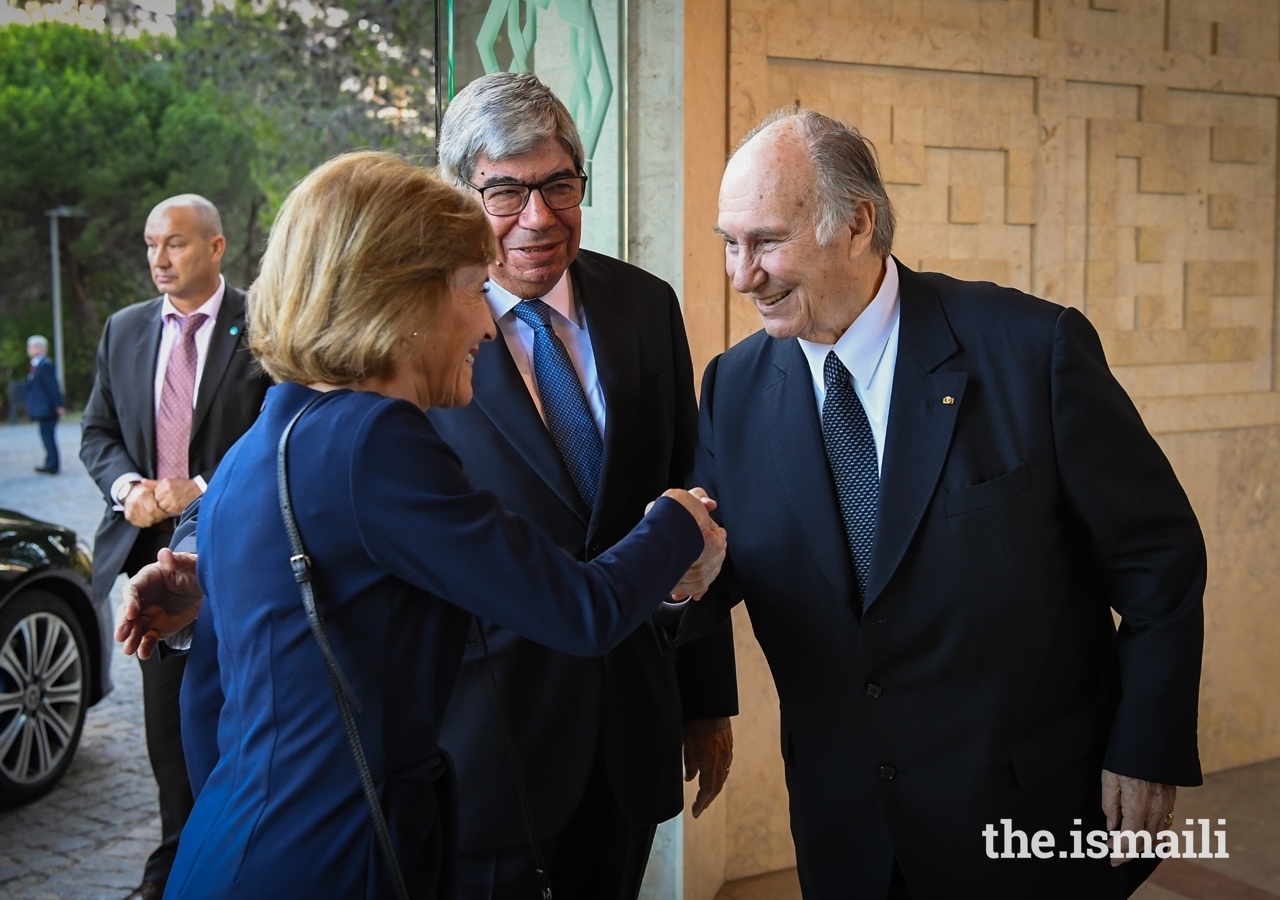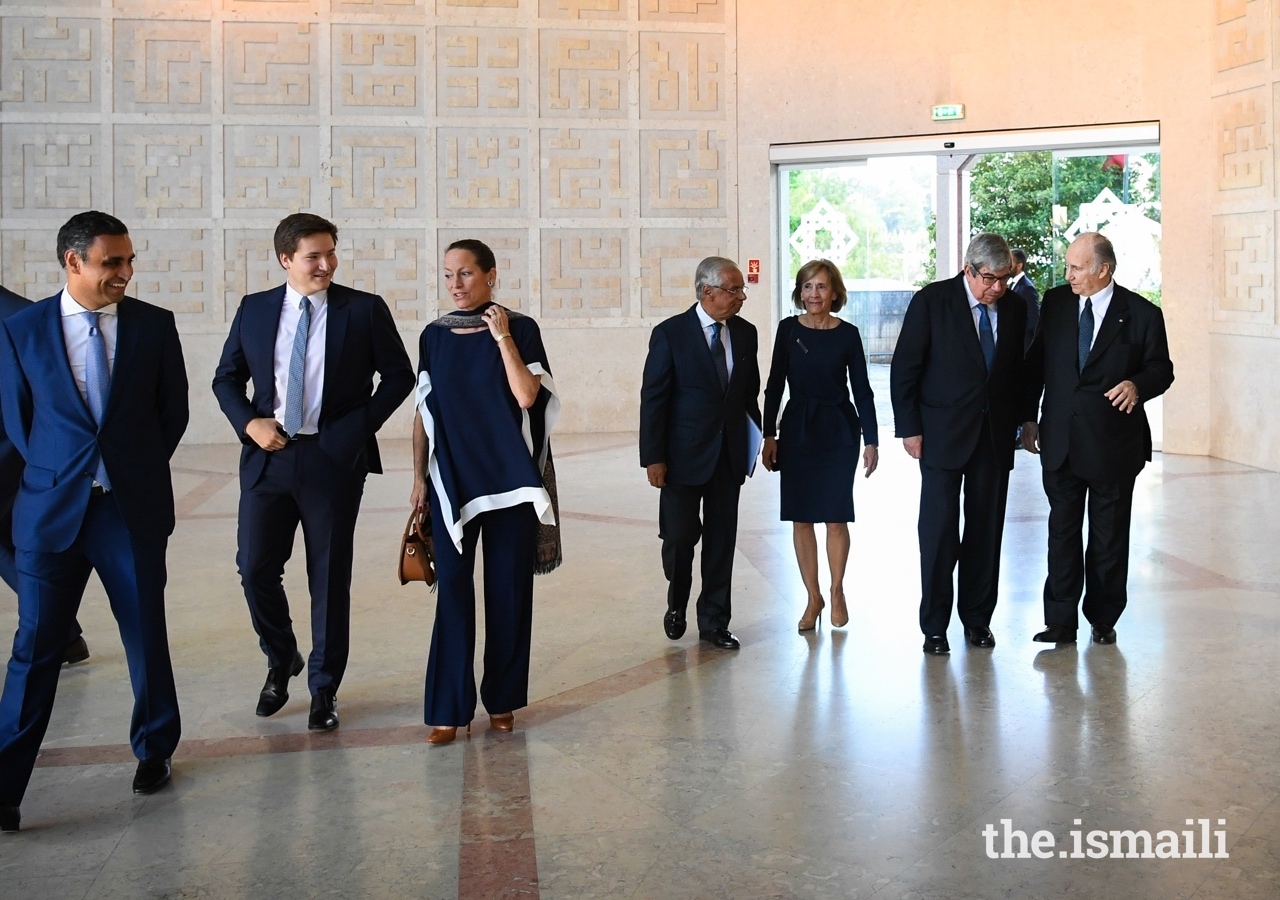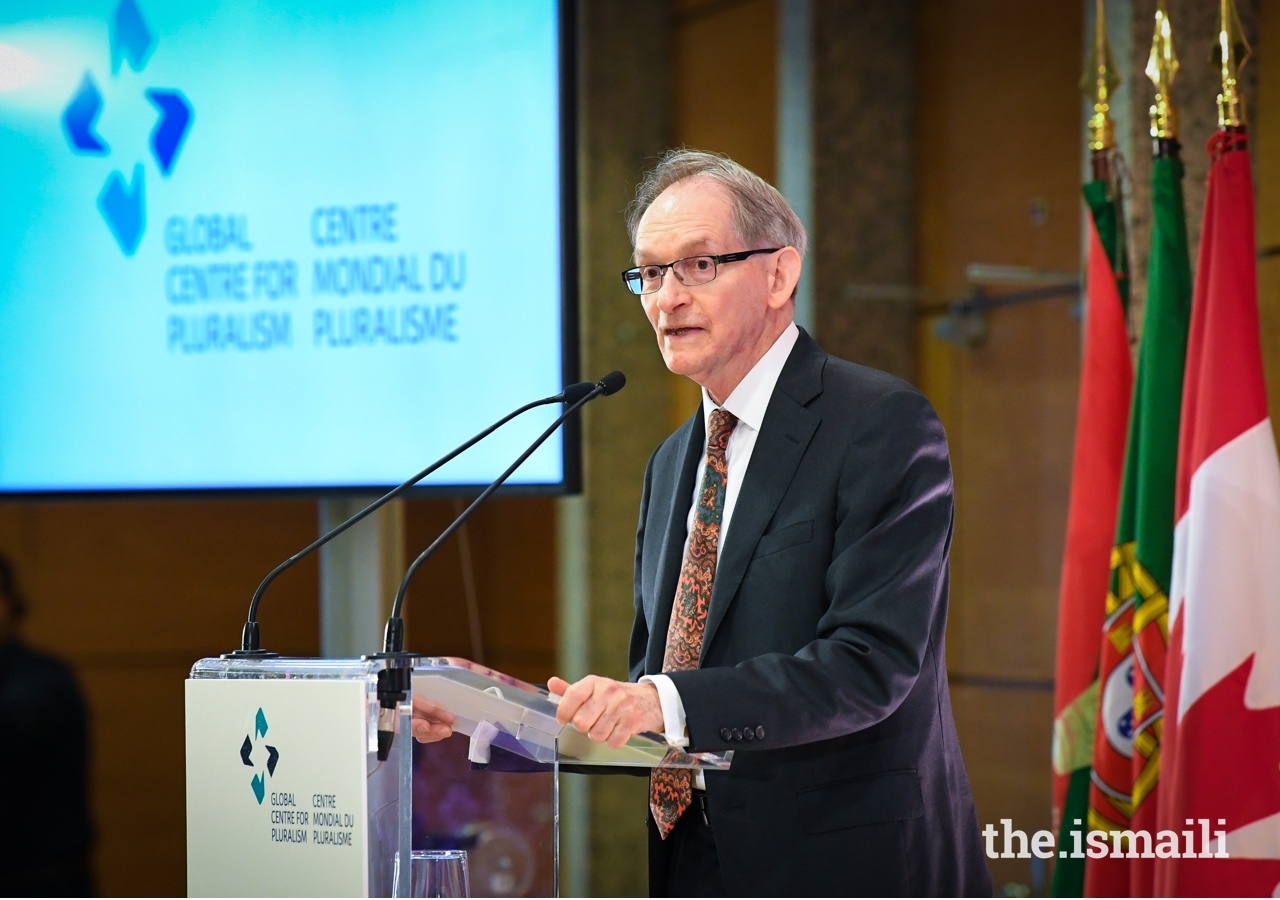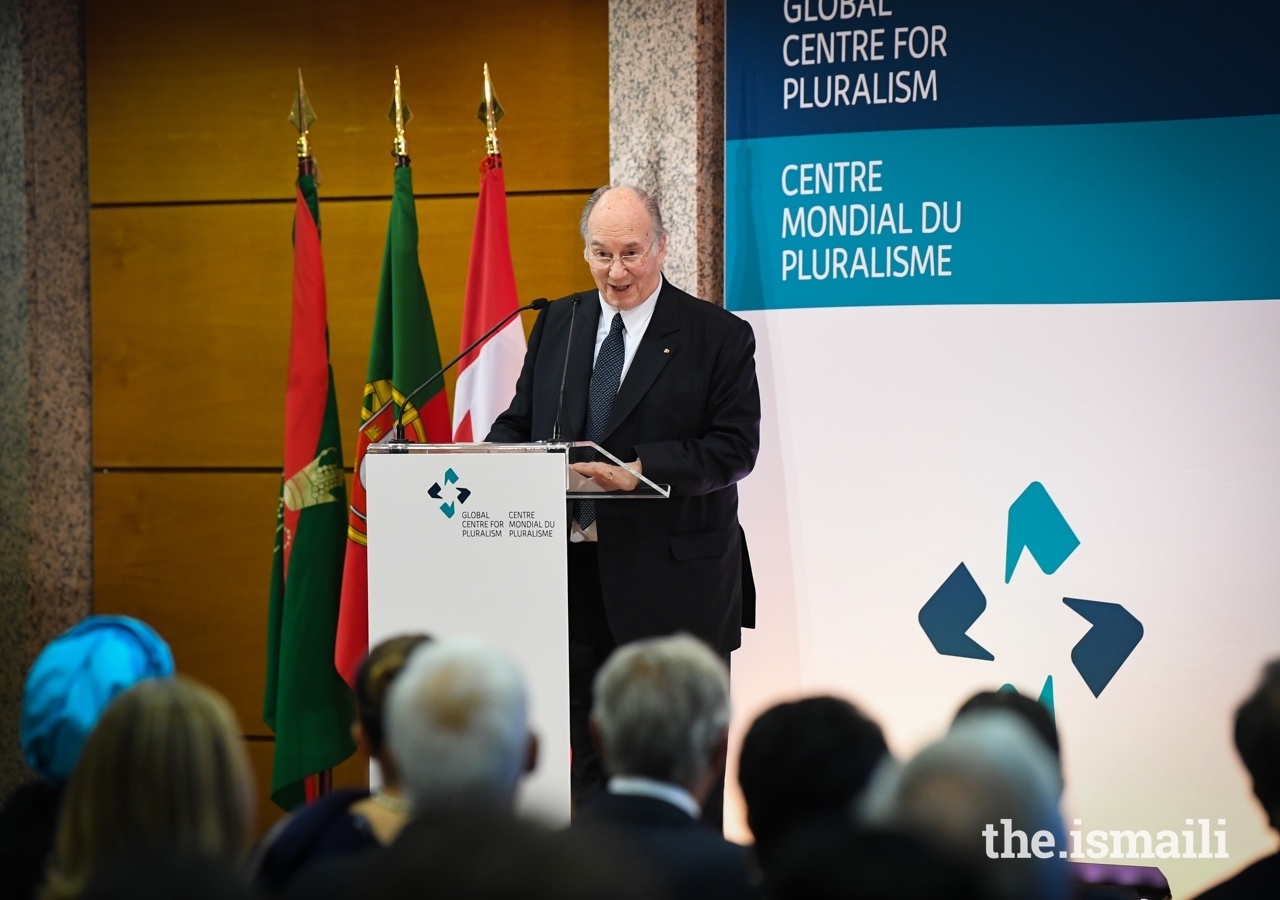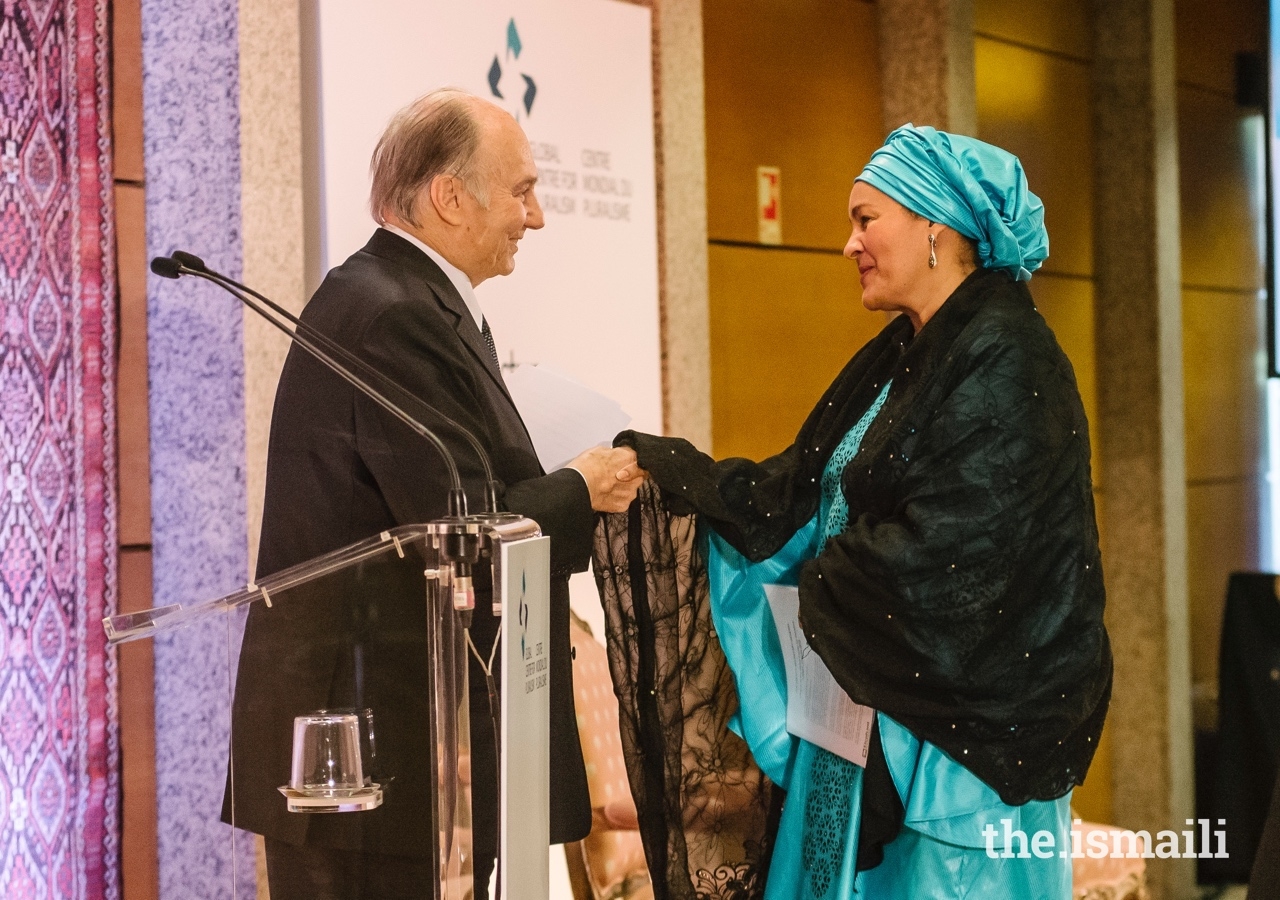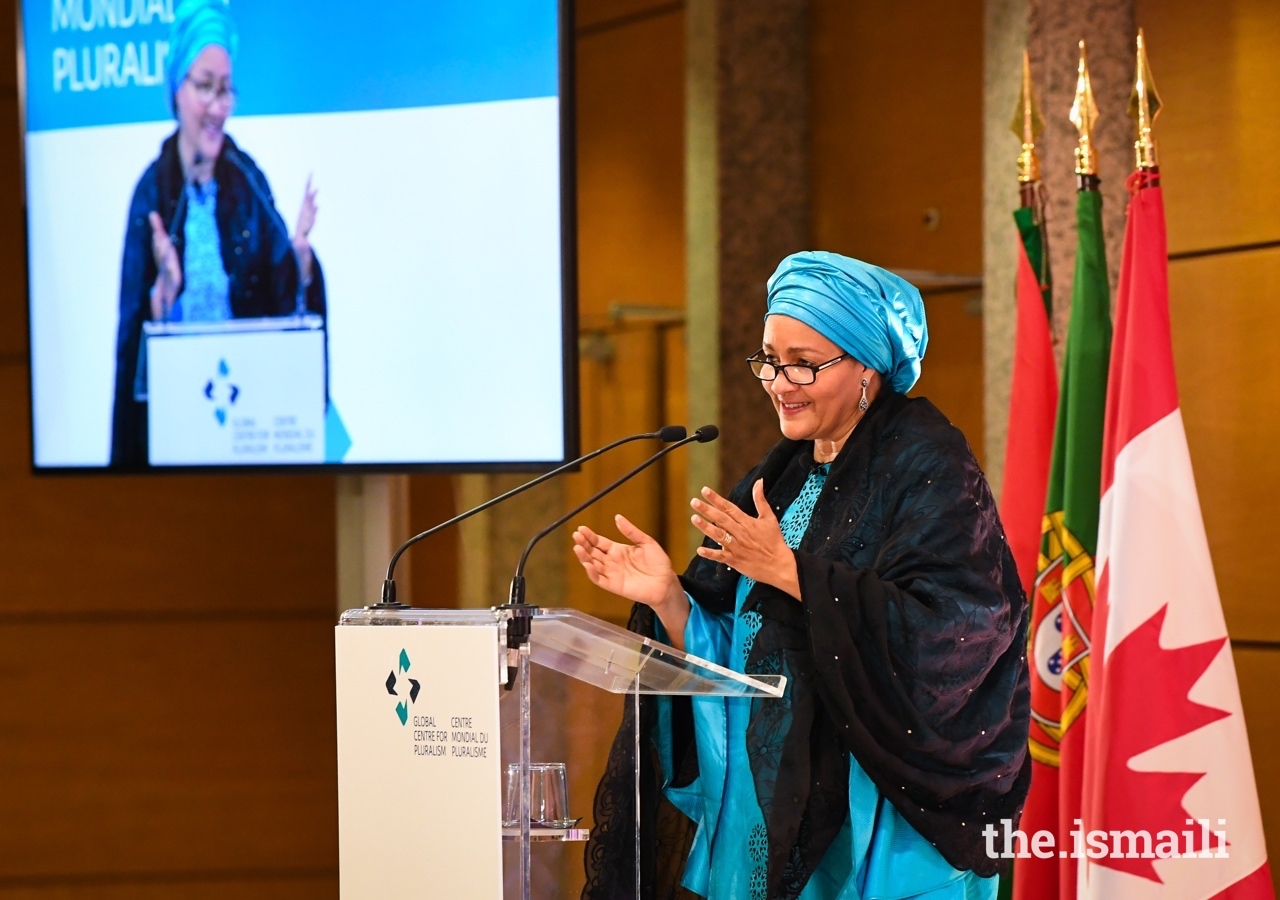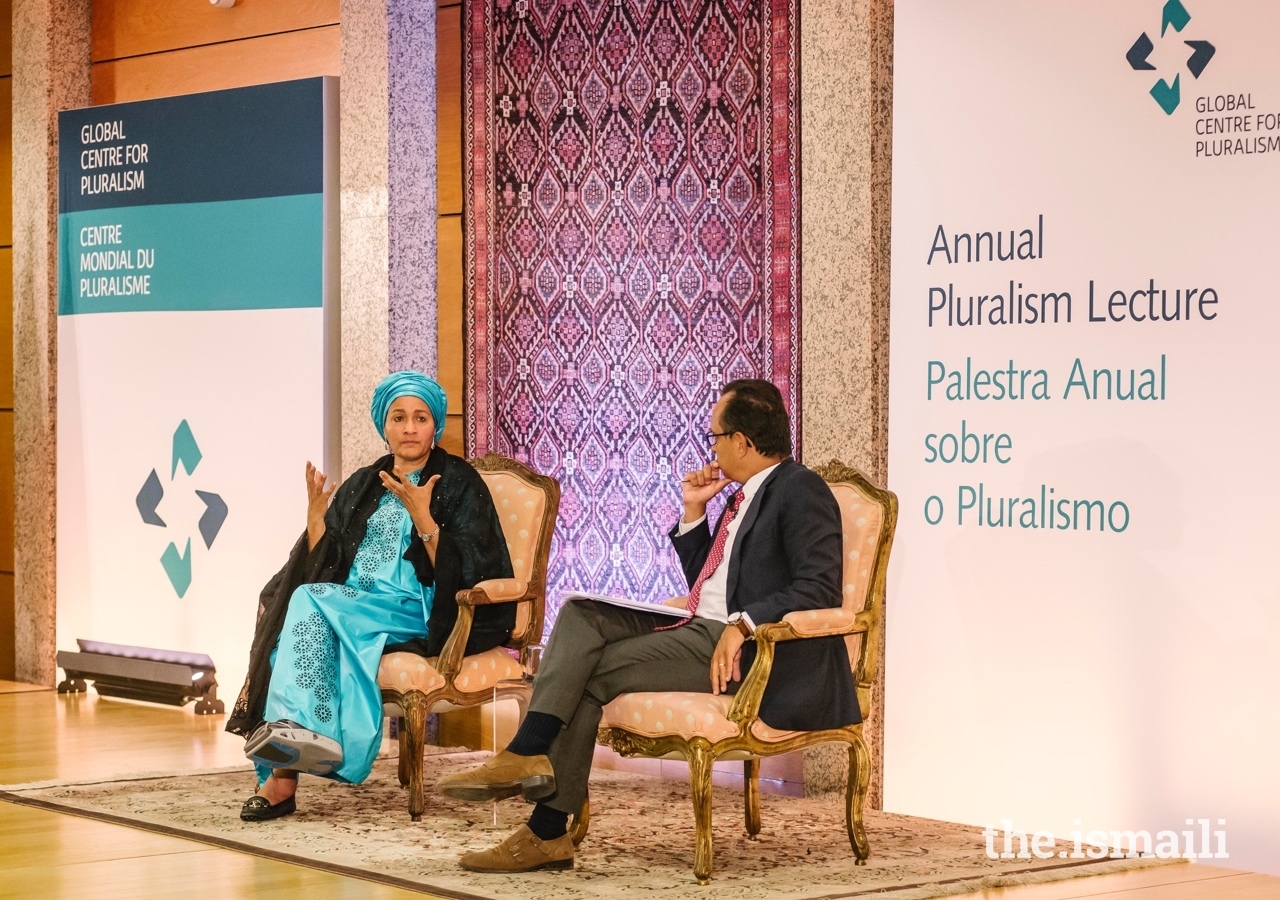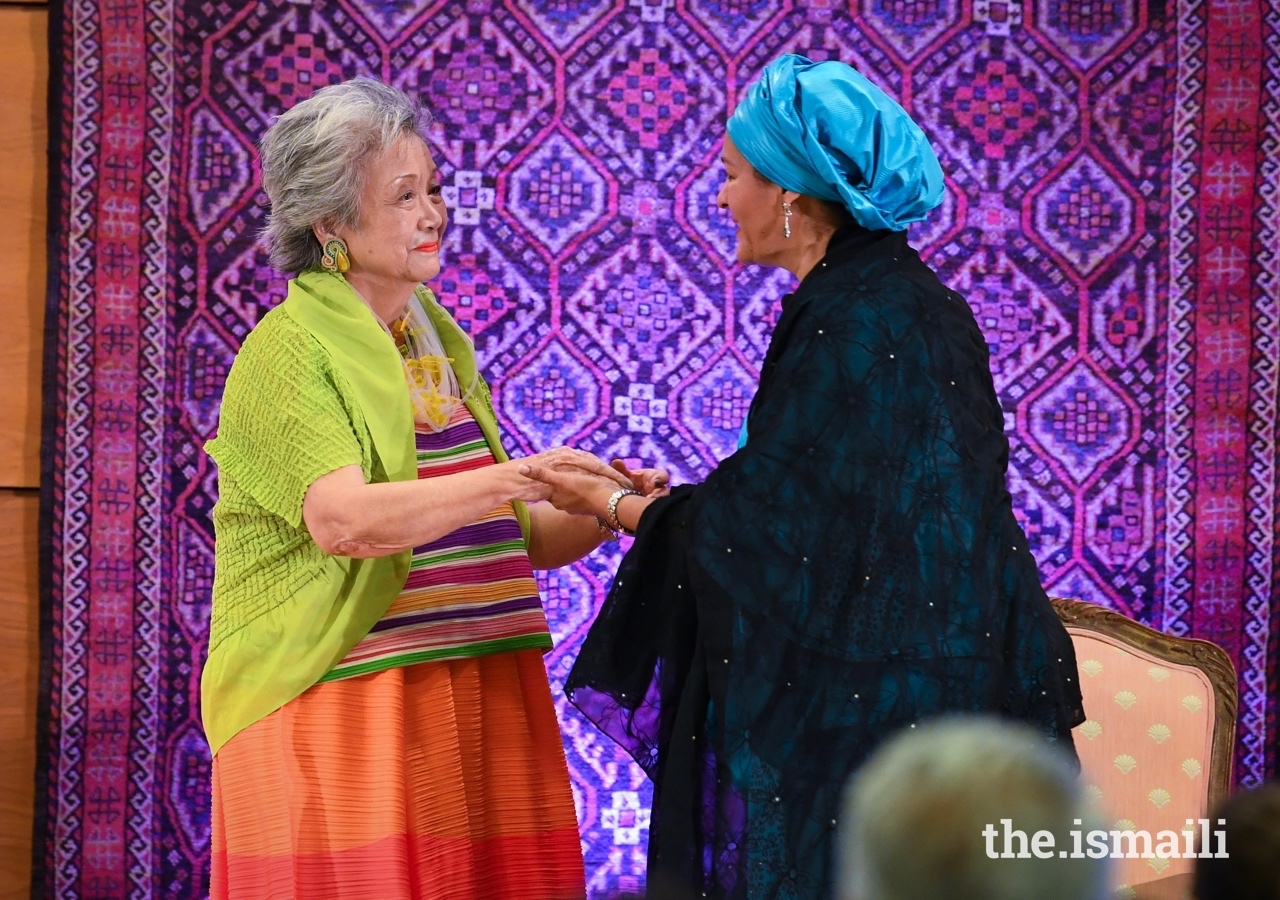This year’s lecture was held at the Ismaili Centre in Lisbon, where John McNee, Secretary-General of the Global Centre for Pluralism, welcomed guests, calling Lisbon “a cosmopolitan city that illustrates in many ways what a pluralistic society looks like.”
In his introductory remarks, Mawlana Hazar Imam also spoke about the pluralism inherent within Portugal, and expressed delight that this year’s lecture was being hosted in Lisbon.
“This country is blessed with a long history of productive co-existence among Christians, Jews, and Muslims… This blending of cultures, religions, and languages brought innovations in architecture, agriculture, medicine, and even cuisine that are woven now into the very fabric of modern Portugal.”
Hazar Imam went on to introduce Amina Mohammed as the 2019 Lecturer, saying she “has had an extraordinary life journey, and we are all privileged to be able to benefit from her insights.”
Drawing on her experiences at the UN, as a former government minister, in the private sector, and as a mother and grandmother, Ms Mohammed offered ways to bridge the gap between words and actions. Her remarks aimed to provide leaders and policymakers tangible steps to address today’s complex global challenges.
Ms Mohammed began her lecture by outlining some of the most intractable problems that global society faces in the 21st century — economic disparity, cultural intolerance, gender inequality, and environmental crisis — all largely caused by various forms of exclusion. She suggested that societies are more peaceful and prosperous when they are diverse and inclusive.
“We have growing evidence that greater diversity and inclusion, particularly in relation to the inclusion of women, is correlated with higher GDP, more responsive governments, better bottom lines, greater stability, and more sustainable peace and development.”
As Deputy Secretary-General, Amina Mohammed has played an instrumental role in bringing about the UN’s 2030 Agenda for Sustainable Development, including the Sustainable Development Goals (SDGs). These goals, which are strongly influenced by the principle of inclusion, are a universal call to action to end poverty, protect the planet, and ensure that all people can enjoy dignity, wellbeing, and greater opportunity.
“Pluralism is in the DNA of the United Nations,” she said. “The Charter, our founding document, refers to ‘We the peoples’ of the United Nations, who are ‘determined to practice tolerance and live together in peace with one another as good neighbours’.”
Ms Mohammed called upon individuals, communities, and institutions — large and small — to become more involved in creating a better world for themselves and others, urging that major shifts toward positive change can be achieved only if all sections of society participate.
“While the 2030 Agenda is global and all-encompassing, it will require action at every level. It particularly needs the leadership and guidance of faith-based and philanthropic institutions working at the local, national, regional and international levels, who can re-instil a sense of our common humanity.”
Following the lecture, Ricardo Costa, journalist and News Director at Portugal’s Impresa Media Group, moderated a conversation with Ms Mohammed, giving audience members an opportunity to participate. She responded to questions on the themes of human rights, inclusion, and respect for diversity, before GCP board member, The Right Honourable Adrienne Clarkson delivered closing remarks.
Ms Clarkson expressed gratitude and paid tribute to Amina Mohammed, calling her “an example of something so shining, and so bright, and so beautiful. The encapsulation of two worlds, of two races… She is somebody that we have to listen to.”
Addressing Mawlana Hazar Imam at the conclusion of her lecture, Ms Mohammed said, “You have been a consistent voice promoting pluralism, inclusion, and respect for diversity over decades. We need you now more than ever.”

